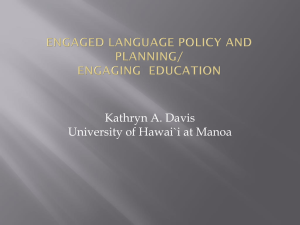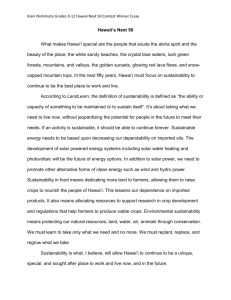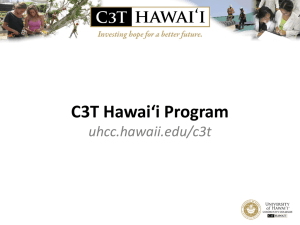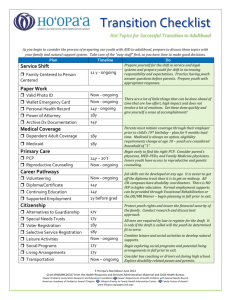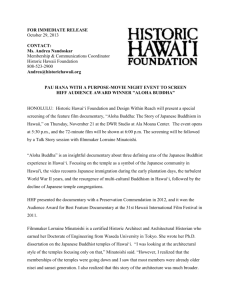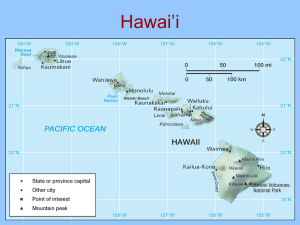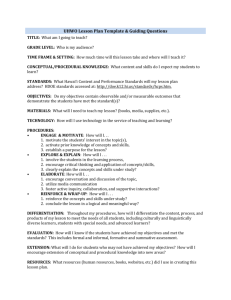Deep Cultures - Hawaiian Perspectives
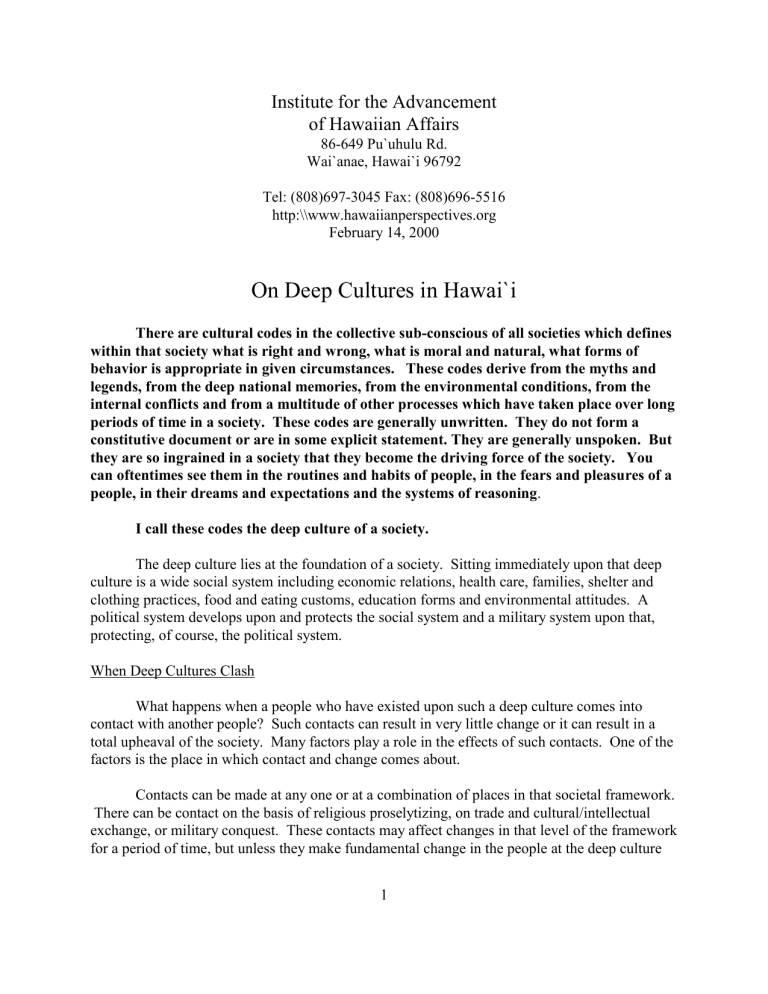
Institute for the Advancement of Hawaiian Affairs
86-649 Pu`uhulu Rd.
Wai`anae, Hawai`i 96792
Tel: (808)697-3045 Fax: (808)696-5516 http:\\www.hawaiianperspectives.org
February 14, 2000
On Deep Cultures in Hawai`i
There are cultural codes in the collective sub-conscious of all societies which defines within that society what is right and wrong, what is moral and natural, what forms of behavior is appropriate in given circumstances. These codes derive from the myths and legends, from the deep national memories, from the environmental conditions, from the internal conflicts and from a multitude of other processes which have taken place over long periods of time in a society. These codes are generally unwritten. They do not form a constitutive document or are in some explicit statement. They are generally unspoken. But they are so ingrained in a society that they become the driving force of the society. You can oftentimes see them in the routines and habits of people, in the fears and pleasures of a people, in their dreams and expectations and the systems of reasoning .
I call these codes the deep culture of a society.
The deep culture lies at the foundation of a society. Sitting immediately upon that deep culture is a wide social system including economic relations, health care, families, shelter and clothing practices, food and eating customs, education forms and environmental attitudes. A political system develops upon and protects the social system and a military system upon that, protecting, of course, the political system.
When Deep Cultures Clash
What happens when a people who have existed upon such a deep culture comes into contact with another people? Such contacts can result in very little change or it can result in a total upheaval of the society. Many factors play a role in the effects of such contacts. One of the factors is the place in which contact and change comes about.
Contacts can be made at any one or at a combination of places in that societal framework.
There can be contact on the basis of religious proselytizing, on trade and cultural/intellectual exchange, or military conquest. These contacts may affect changes in that level of the framework for a period of time, but unless they make fundamental change in the people at the deep culture
1
level, the society will find a continual pull toward those systems which express the existing deepculture of the place.
In the Hawai`i experience, we find a society which had developed a strong deep culture upon which a particular social, political and military structure formed. On-going contact with
Europeans came about in 1778 by the visits of Captain James Cook of the British admiralty.
Those initial contacts were largely based upon trade.
Hawai`i, meanwhile, was undergoing an upheaval in its political order, with chiefs fighting for territory and power over one another. Those internal political upheavals were by and large settled by 1819 through the unification of these islands under Kamehameha I, resulting in a consolidated political system governing Hawai`i.
Immediately thereafter, Hawai`i underwent a widespread, internal, even formalized upheaval of its religious underpinnings, instigated through edicts (`ai noa, the releasing of the kapu) from the government for the people to step away from their traditional religious practices.
Christian missionaries from the American Board of Commissioners for Foreign Missions arrived from Boston, Massachusetts, amid this religious turmoil. This timely arrival provided those conditions resulting in their direct influence in the religious order of the society. Both the `ai noa and the coming of the missionaries split the society in ways which are still being felt today by the combining and clashing of two major systems of religious practices. We find the emblems of the ancient religious practice still reflected in the wide practice of cultural dances and chants, styles of eating, reverence for nature, health practices, naming of children, etc. Yet, we also find constant outward appearances of Christian beliefs side by side with the ancient practices.
Products of Christian Missionaries
The missionaries played a significant role in the widespread formal education system as well as the political reformation of the society. From a society which had no writing system
(aside from the traditional petroglyphs) in merely ten years after missionary arrival, a writing system had been introduced and the bulk of the Hawaiian population became literate, far in advance of other nations of the world.
Another decade later, a Hawaiian Magna Charta was instituted, observing the fundamental rights of all human beings and the equality of all, chiefs and commoners, before the law. This was followed immediately by a written constitution beginning a political system of human rights and a constitutional representative form of government with a monarch at the helm.
Hawai`i developed a pattern of international relations engaging in trade and intellectual commerce and exchanging formal political recognition and diplomats with nations throughout the world. Hawai`i soon became the most literate nation in the world. It had 99 diplomatic and consular posts around the world, and was a member of one of the first international governmental
2
organizations, the Universal Postal Union. Its international status as an independent and sovereign state was recognized world-wide.
As all of this was happening, many more cultures came into Hawai`i, from both the East and West, having continuing impact upon the Hawaiian society.
American Invasion
On January 16, 1893 United States troops invaded Hawai`i and participated in establishing a puppet government for the explicit purpose of ceding Hawai`i to the United States of America. After four years of investigation and debate within Hawai`i and the United States, including an admission by the U.S. President that an invasion did occur which violated international law and the treaties between the two countries, the U.S. Congress (in the turmoil of the Spanish American War) voted to annex Hawai`i as an American territory in 1898. This act violated the U.S. Constitution requiring treaties to be approved by 2/3rd of the U.S. Senate. It refused to consult with the people of Hawai`i who, there is no debate, were overwhelmingly against the annexation.
In 1900, the U.S. government restructured the Hawai`i political system along the lines of a colonial/military outpost and governed Hawai`i in this manner. It held direct control over all military forces, over the political, including the judicial system, over immigration, and over all trade with foreign countries. In 1959, it placed the question of Statehood before the Americans in Hawai`i who voted in favor. The Congress switched Hawai`i political relationship from a
Territory to a State of the U.S. union. (See separate article on Hawaiian Statehood.)
Results
Given this brief review of Hawai`i’s history of foreign contact, especially a colonial contact with the U.S.A., let us return to the analysis of the societal framework, in particular the deep culture of Hawai`i. We have seen Hawai`i’s deep culture established over generations of existence, by 1820, undergoing major impact through the religious edict of the government, the unification of the government structure, the formation of new economies, and the expansion of the awareness of the international community. All of this was occurring in a general environment of self-determination by which indigenous leadership, in the final analysis, determined the national policy.
U.S. military act resulted in a reversal of that indigenous led constitutional monarchy. It brought about an American controlled economy, political structures and relationships, heavy militarization, as well as unfettered immigration from the United States and other areas. The
U.S. also dictated education, media, and finance.
3
DIE & OLA
Today, what we find is a jumbled flow of at least two distinct deep cultures within the
Hawai`i society. One is prominent in the formal and the other in the informal systems of community life. The first contains strong elements of:
Domination - especially reflected in the formal economic, education, political, military and judicial systems. Ingrained within this element is the idea of expansion, an ever enlarging territory, market, or field of conquest as being a natural order of things.
Individualism - protected in the legal system, elevated in the expression of history and dominant Western philosophies. Ingrained within this element is the idea of singularity, a continual parceling apart, fragmenting of things, concepts, persons from people.
Exclusion - often accomplished by the depersonalization of the “other,” the stranger.
One favorite technique is by referring to others as non-human entities, “gooks” and “commies” for example instead of men, women and children, the “evil empire” instead of the people of another nation.
The acronym DIE is an easy reminder of the elements of that deep culture stream. It is prevalent in the formal economic, education, judicial and political systems of the Hawai`i society today.
The second stream contains elements of:
`Olu`olu - compatible, agreeable, creating relationships of comfort, of inter-relating with a high degree of respect and trust, even alongside one's competitor, of finding contentment with what one has, of staying within one’s kuleana, territory or property;
Lokahi collective effort, many working together for a common goal which gives a foundation for looking at the wide implications of small things,
Aloha - a propensity toward inclusion of other people and different philosophies, a searching out for the humanity within others and trying to urge that humanity to the surface of inter-relationships.
This "OLA." is generally attributed to the underlying Hawaiian culture and the multiplicity of added cultures to Hawai`i. It is entrenched in the informal economy of sharing and caring, of non-formal education, of traditional healing, of alternate dispute resolution systems and community organizing. In the Hawaiian (and other Polynesian) language, it means both health and life.
Of course, one would have to look long and hard to find a pure DIE or OLA in the general community. These deep cultures continually mix, clash, and cooperate within individuals, families, situations, and systems. They add to the schizophrenia and to the compatibility of the society which makes Hawai`i so incomprehensible for some and so delightful to others. These deep cultures are more than interesting anthropological points of inquiry. They have very serious implications to our society. They form the foundation upon
4
which we build our relationships with one another, how we interact with our environment, our attitudes to time, justice, sharing and caring, family, medicine, . . . They are guiding forces to our individual and collective futures.
Here’s a simplified example of the practice of DIE and OLA deep cultures. Two young men come into a large source of cash and decide to buy a car for each of them. One goes out and buys a two seat, two door, convertible sports car to “go cruising” with a friend on date nights.
The other buys a van so he can take the whole family around the island, to the “games” or just to
“go holo holo” (visiting without a specific destination). Those choices are expressions of deep culture.
Consider the implications. Hawai`i's environmental policy can be used as a study. If those who make decisions over such a policy follow a DIE cultural concept, the environment will be treated from a "domination, fragmentation" approach - man has the right, (some argue, even the responsibility) - to conquer, dominate, and subdue the environment. The value of the forests are to be measured only in terms of its utility to the human population. Likewise, the ocean, the streams, the sky, the plants and animals, the winds, etc. Alterations to the natural elements are accomplished without any second thought: the first and only one being the "good” of man.
An OLA concept would approach the environment from a kinship and a unification approach. The `āina and the kai, the land and the ocean, would be treated as ohana, family. The cutting down of plants or the fishing in the ocean may or may not incorporate ceremony, but in the doing, there is certainly a sense of reverence, of operating within and of performing a special, sacred task.
1
The operator of a machine uses it and applies it to the environment by creating within him/her self a relationship. He feels the mood and the spirit of the tractor, he can tell when he is pushing it too hard, or not enough. He feels the contours of the earth and the spirit within those contours. He may not be able to explain it, but those feelings are there deep inside.
Hawai`i has a unique food dish called “plate lunch.” It is filled with a mixed variety of food. One could find rice, mashed potato, sweet/sour spare ribs, hamburger, chicken or pork adobo, hot dog, chili, laulau, spaghetti and meat balls, kim chee, daikon, macaroni and/or potato salad, toss green salad, and a whole assortment of other dishes. Malihini or newcomers to
Hawai`i are generally puzzled by this customary food practice and why it is so popular throughout Hawai`i and among the local population. Their choice of lunch is at McDonald or
Burger King. It is another reflection of deep culture.
Visit any public high school in Hawai`i and you can find expressions of DIE and OLA in
1
An Introduction to Some Hawaiian Perspectives on the Ocean, a paper by Poka Laenui, Institute for the
Advancement of Hawaiian Affairs, presented at a conference FREEDOM FOR THE SEAS IN THE 21ST CENTURY: A NEW
LOOK AT OCEAN GOVERNANCE AND STEWARDSHIP, December 10 - 12, 1990, Honolulu, Hawaii, posted at http:\\www.opihi.com\sovereignty and Reprinted in a book named after the conference, Jon Van Dyke, editor.
5
practice. The morning bell rings and students are in their classes knowing, without naming it, that they are under the DIE culture. There is a clear pecking order and a DIE code to follow. The teacher is the boss, there is a clear division of intellectual structure, and the rules of system are well understood - grades are spread along a curve, no sharing of answers on tests, gain recognition, put yourself forward, and respond in a loud, clear and confident tone your answer or ideas, gaining points or merits for correct responses.
Ring the bell again and students immediately switch to an OLA culture. Sharing and caring become major means of transaction, as food, stories, problems, and joys are circulated among the group. Differences are celebrated. Help is always available. As students return home, sharing continues to be a code. One should not be too proud, know-it all, and act better than others.
The Hawai`i case is not materially different from many other peoples’ experience with the mixing of deep cultures from different parts of the world. Generally, we like to limit such mixtures to the will of the host people who are receiving the incoming peoples and cultures. The problem with colonization, however, by its very definition, is that the host people are merely overrun by a foreign, uninvited government.
If we are truly to control our own future, if we are to have real self-determination, if we are fully to appreciate our public policies and private behavior patterns, we must be aware of these streams of deep cultures within our society and where they come from. We need to teach ourselves to be more observant, to recognize within our own selves that we are playing out our deep culture patterns accumulated over the years, and are passing them to others we influence, especially the children. In this way we become clear of why we think and live the ways we do, of our options, and we are able to be more deliberate in directing our paths to be taken as we unfold into our futures.
This paper was originally printed in the Institute for Zen Studies, May 1997 and subsequently expanded for further publication. Contributors to the ideas come from many sources including Archbishop Tanouye Tenshin, Puanani
Burgess, Pilahi Paki, `Imiola Young, Pualani Hopkins, Professor Johan Galtung, Sylvia Krewson-Reck, and of course, the general Hawai`i society. Pōkā Laenui
6
